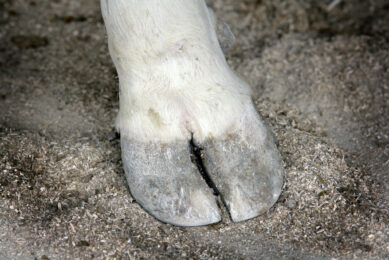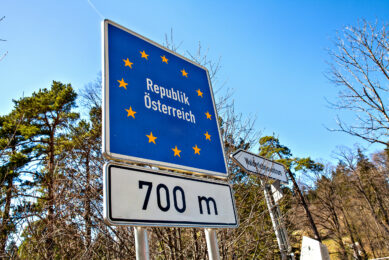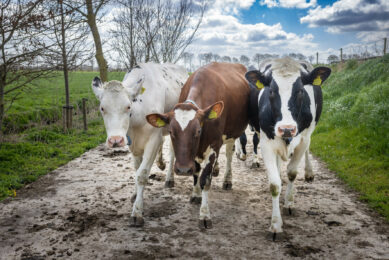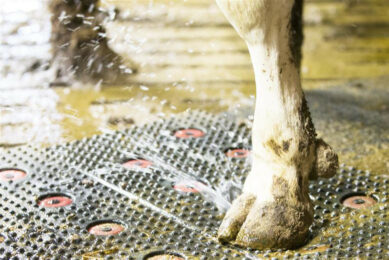FMD Germany: ‘Ray of hope’ for dairy and pork producers
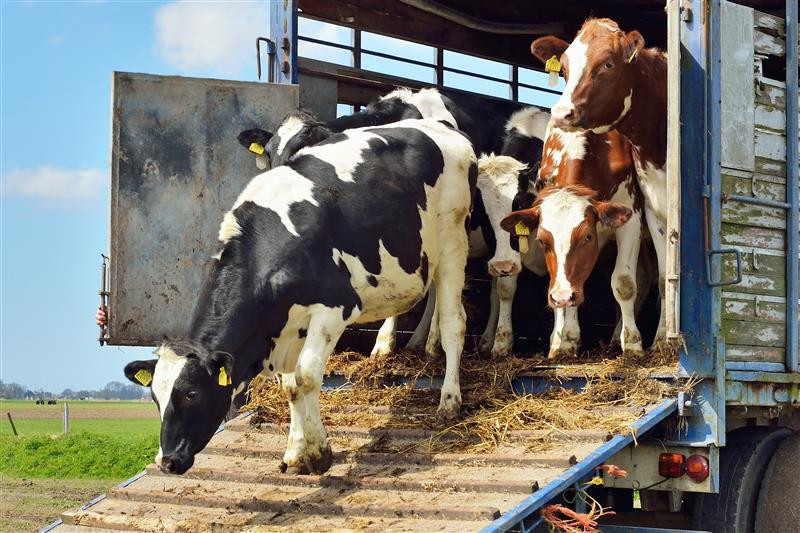
So far, no new cases of Foot-and-Mouth Disease (FMD) have been confirmed in the German state of Brandenburg. This is good news since it was reported that 3 water buffalo were confirmed positive for FMD on a farm just east of Berlin, in Hoppegarten, on 10 January. Trade outside the affected regions is said to be continuing as normal. The UK, however, has closed its borders for German pigs, cattle and sheep, as well as their fresh meat.
Germany’s national reference laboratory, the Friedrich-Loeffler-Institut (FLI), has confirmed that, so far, no additional cases of FMD have been found in the animals that had been culled preventively in a 1km radius around the infected farm.
As the virus can potentially infect all cloven-hoofed animals, in total, 170 pigs, 55 sheep and goats and 3 cows were culled. That was either because they were close to the infected location or because they had been given hay from the water buffalo location.
FMD virus around since late December
The remaining 11 water buffaloes on the infected farm have been culled. Of the 3 dead buffaloes, 2 had been taken directly to a carcass processor, while the 3rd was tested at the FLI and turned out to be positive for FMD – as were the 11 other animals from the herd. The FLI stated that it is still unclear whether the 3 dead animals died as a result of the FMD infection.
However, it appears that the virus has been present in the water buffalo for quite some time. The German agricultural association (DBV) stated that antibodies for FMD were found, which indicates that the virus might have been around since the end of December.
It is still unknown what the origin is of the FMD virus – potential routes of infection might be that the virus was present in infected straw or that it spread amongst wild boar. Hence, hunters are on high alert to spot clinical signs.
This FMD infection is of serotype O, a variety that occurs in Turkey, the Middle East and Asia. The regional laboratory of the state of Brandenburg is still examining samples from other animals from the 10km radius.
Emergency vaccination not an option
Bernhard Krüsken, DBV secretary general, has said that he does not currently see emergency vaccination as a suitable means of containing the disease. The spread is not yet large enough to justify that, calling it not an “instrument for curing the disease”. Vaccinated and affected animals can no longer be distinguished after vaccination and must be killed. As a result, Germany is losing sight of “where the pathogen is traveling”.
Trade in milk and meat in the EU remains possible
The German Federal Ministry of Agriculture (BMEL) has indicated that the principle of regionalisation still applies outside the restricted zones with regard to trade within Germany and the European Union. That means that shipments of milk and trade are permitted as normal.
As expected, the European Commission today (15 January) confirmed the 3km and 10km buffer zones around the finding place of the Foot-and-Mouth Disease (FMD) outbreak, which had been put in place by state authorities in Brandenburg.
German agricultural title Top Agrar quoted Cem Özdemir, Germany’s federal minister for Food and Agriculture, who called the Brussels decision “a ray of hope for producers”. He said, “The Commission has not expanded the area closed by Brandenburg. Meat and dairy products produced outside the restricted zone can therefore continue to be traded within the EU. The current situation is very stressful for farms – many producers fear for their animals. The aim must continue to be to prevent the virus from spreading in order to protect the animals and minimise damage to our agricultural and food industry.”
UK: Import ban for cattle, pigs and fresh meat from Germany
The number of countries that have closed their borders for imports of certain animal products from Germany is growing. The United Kingdom – which, since Brexit, no longer forms part of the European Union, has officially banned the import of live cattle, pigs and sheep from Germany, as well as their fresh meat.
“The market that is hardest hit at the moment is the dairy industry, after that the pig industry. The beef industry is the least affected…”
That way, the UK Department for Food and Rural Affairs (Defra) hopes to protect its domestic producers. What is still allowed are milk, dairy products and colostrum that have been treated in accordance with EU Regulation 2010/605 – still applicable in the UK after Brexit. As for their meat products, only in processed form these might be allowed to enter the UK. Animal by-products can only enter the UK if they have been effectively treated to minimise the risk of FMD. Defra is also working on additional restrictions on the import of animal by-products, hay and straw from Germany.
The last time the UK experienced a major FMD outbreak was in 2001. At the time, around 10 million animals had to be killed there, with massive economic consequences.
South Korea has already closed its borders for pork from Germany. According to the agricultural association in the state Baden-Württemberg, similar actions would be considered in Mexico, Canada and Vietnam.
Medium and long-term effects of FMD
Dr Albert Hortmann-Scholten, attached to the Lower Saxony Chamber of Agriculture, has also pointed to the medium and longer-term effects of FMD on market conditions. Interviewed by Top Agrar about the effects on meat exports outside the EU countries, he said, “In 2024, altogether the (German) animal meat industry managed to achieve revenues of €840 million in third countries. In total, German meat exports reached a level of almost €5 billion. So, that is why the market is shocked.”
He continued to say that the market will finds its way, just like it has with previous outbreaks of animal diseases. Of the amount of German pork shipped to destinations outside the EU, the UK is the most important. “The market that is hardest hit at the moment is the dairy industry, after that the pig industry. The beef industry is the least affected,” he added.
Netherlands: Transport ban for calves will last at least a week
In relation to the FMD outbreaks, a transport ban for veal calves in neighbouring the Netherlands will remain in force at least a week, until all results of the FMD investigation in Germany are known. That was announced by the Netherlands ministry of agriculture, fisheries, food security and nature (LVVN).
Due to the FMD infection in Brandenburg, 125 farms with veal calves that received animals from the state since 1 December have been blocked. All 3,600 calves are being examined and sampled for FMD. The first results will be known in the coming days.



